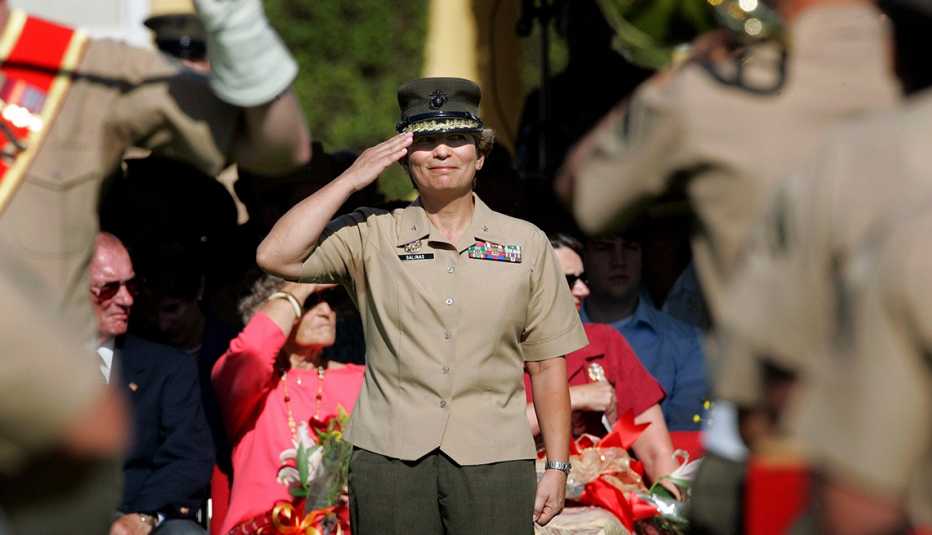AARP Hearing Center
When retired Maj. Gen. Angela Salinas enlisted in the Marines in 1974, she recognized that she was joining an organization known for its incredible fierceness, not for its desire to include women.
“I’m joining an organization who doesn’t want me,” says Salinas, now 68. “But once you earn that title of Marine, no one can take that from me.”
While a military career was not a path a young Salinas expected to follow, it sparked a remarkable life of service, first as a distinguished Marine and then as an executive with the Girl Scouts of Southwest Texas.
Enlisting in the ’70s
She remembers arriving at the post office to mail a letter when a Marine walked out of the nearby recruitment office to ask why she wasn’t in the Marine Corps.
“The country really almost ignored that their biggest resource is somebody that looks like me, and really women were ready to step up,” Salinas recalls. “I said, ‘Look, buddy, I am just trying to mail a letter. Get away from me.’”
Little did she know that a week later, she would be at Parris Island, South Carolina, meeting her drill instructor.
At the time, the responsibilities of women in the military were very different from what they were permitted to do during World War II. In that war, they were able to work in every occupational field within the armed forces. But when WWII ended, those jobs were eliminated.
Nonetheless, when she arrived for basic training, it changed her life trajectory.



































































More on Home and Family
How a Former Marine Continues to Serve
Thomas Brennan sees journalism as another way to protect democracyRetired Military Dog Reunites With Soldier
Mission K9 Rescue has saved over 1,100 dogsTuskegee Airman Gets Recognition After 74 Years
Inaugural 'Top Gun' winner receives Wish of a Lifetime